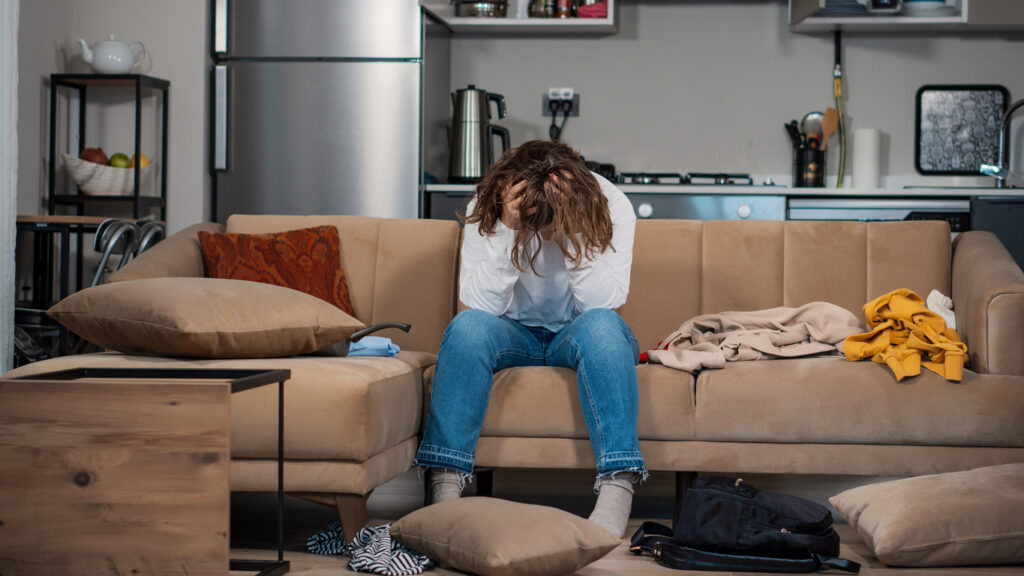Change – a word that can really unsettle a lot of people. Although changes can often be good for us they can also be very difficult. Routine, structure and stability are all things that leave people feeling safe and secure. When they are gone people can start to feel anxious and unsettled.
Change can be very difficult for many people. It can happen in all areas and aspects of people’s lives and it can often be really hard for some people to deal with. Whatever the change is, it can bring about stress, and more often than not, it can be difficult to adjust and get used to.
People often feel secure when they know where they stand and when they have an idea about what to expect each day. This could for example be In a job or in the relationships that they have in their lives. When something changes to one or some of these areas it can be hard for people to adapt to.

A lot of this has to do with identity. Where we work, live, who we spend time with, and how we feel about these areas of our lives, all contribute towards a sense of knowing who we are. When things around us change, people can be left feeling unsettled and questioning things about themselves.
For example if someone is made redundant this can naturally be an unsettling and anxious time. Even if the redundancy is welcome, it can bring about a sense of not knowing what will happen next. While this can bring about excitement – and a time to try something different, it can also leave people feeling worried, on edge and unsettled.
Outside of work, moving house, or changing who we are living with, can be difficult for people. Our home is ideally meant to be a place where we feel safe and settled. If this changes it can also heighten anxiety and bring up a variety of emotions. Adapting to a new living environment can be difficult. Again it can be something that is exciting for some people. But it always brings about some level of stress.
Change can also apply to relationships. Friendships, family relationships and romantic relationships can at various times break down. Perhaps they end, or perhaps they go through difficult periods. Sometimes people can get extremely close, but then dynamics can change, and they no longer feel as close. People can often find this difficult to deal with and feel very unsure and unsettled when the relationships around them experience change.
Other life changes can happen, for example when people get married, or when they have children. Or when young people move out, maybe they go travelling or start university, or their first job. These are significant changes in the ‘stages’ of our lives. Often they can be enjoyable and happy times, but equally they can often be daunting, hard to cope with and overwhelming.

Stages in life can involve a lot of change. Equally when people feel they are not ‘where they should be’, this can bring up anxiety and a sense of panic. For example when people turn a certain age they often think they should be married, or should be having children etc. If they aren’t, and those around them are, then this can leave them feeling inadequate in some ways, as though other people are changing/ moving forward, and they aren’t. This can be really difficult for people to deal with.
In addition to this, with age, people’s bodies, health and looks can change. This can be hard for individuals to deal with. Whether this is around size, shape, hair, the need to slow down etc, it can leave people feeling unsettled. As people get older things do change a lot and this can be hard to contend with. For example as children grow up and leave home, parents can be left wondering what to do with this change, or as people retire, maybe they feel unsure as to what to do with their time. Again these changes relate to identity, and people have to adapt to the change, and try and make sense of who they are in their lives now, and what their role is.
Ultimately as people we evolve, change and grow/develop. This as mentioned can be exciting and at times quite liberating. It can also give people the opportunity to move forward and to achieve things that they have always wanted to do. Change can lead to people feeling much better in themselves, and it can invite new and positive things in to their lives.
However we know that it can also cause people to feel very anxious, unsettled and at times on edge. This is for all the many reasons that we have outlined above. So the big question really is how to cope with change ????

Of course therapy is a really useful place to explore feelings around change. It offers a safe place where they people discuss what is going on for them. Ultimately it can help people to understand more about who they are, and what their identity is. Individuals can work hard in therapy to deal with the change they are going through, the anxiety it is causing, and the panic it may leave them feeling. Therapy can help people to work through this change and to adapt to it, with a sense of still knowing who they are.
There are however some other ways to cope with change. Here are a few that can really help –
- Remind yourself daily that change is always scary in the beginning, messy in the middle and very often beautiful in the end.
- Change feels scary because we are faced with the unknown. Try to remind yourself about the times in your life when the unknown has lead to positive changes have taken place. Remember just because things are changing it doesn’t have to be negative.
- Remember that it is through our greatest challenges that we often have our greatest growth.
- Remember that while navigating your way through scary moments – it is important to try and find some joy along the way. Even if those windows are small. Think about the things that you enjoy and make space for them.
- Try not to focus on what others think – when you break it down it does not really matter.
- Focus on the here and now as much as possible – being mindful and in the moment will instantly bring you a sense of calmness and clarity.
- Create positive mantras for yourself – that help you to get through the day as calmly and clearly as possible.
- Set yourself a daily goal – no matter how small. Giving each day a sense of purpose will make you feel better and enable things to be more manageable.
- Do not put yourself under too much pressure – now is not the time for adding pressure to your life. You have not got to do everything right now. Remember its ok to simply ‘be’.
- As simplistic as it may sound – remind yourself that ‘this will pass’. It can be impossible to hold on to that at times. Especially with the length of time that things have gone on for. But if you can keep telling yourself – it will make things easier to manage.
- When you find yourself feeling stressed or on edge, try to take a step back and ask yourself does it really matter? Is the thing you are worrying about or focusing on important right now? Will it matter next week? Next month? Next year?
- If you find yourself feeling anxious then it can be useful to work on breathing techniques. Calm breathing can really help to settle us when we are feeling anxious and overwhelmed.
- Try and implement things like exercise, walking, reading and yoga into your life. Physical activity can really help to reduce stress levels and to manage anxiety.
- It can help to take time out with things like a bath, meditation etc. This calm time is very important and can leave you feeling more settled and able to cope.
- It can also help to write down your worries and imagine how different they might look in a year’s time. Sometimes this is very grounding and settling.
- Make your self-care total priority and do not feel guilty or bad for doing so. It is so important right now. Whatever you need to do for yourself now – make it a priority and make it happen.
- Reach out to your support network if you need too. Its ok to ask for help. If you need time and support from your friends and loved ones, then do not be afraid to ask for it. And if you find that you need more support then reach out to the helplines available and embark on the path of therapy if you feel you can. While it may feel scary to do so – it can really make a difference.
- Finally – learn to expect the unexpected. The more emphasis we put on a plan or focus on how we think our day ‘should’ look – the more unsettled we become when things change. If we are open to change, if we are aware that the unexpected can happen at any given time – then we are far more equipped to cope.